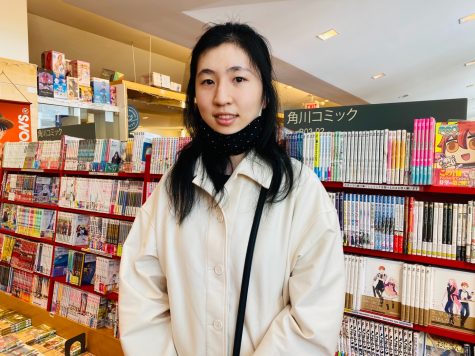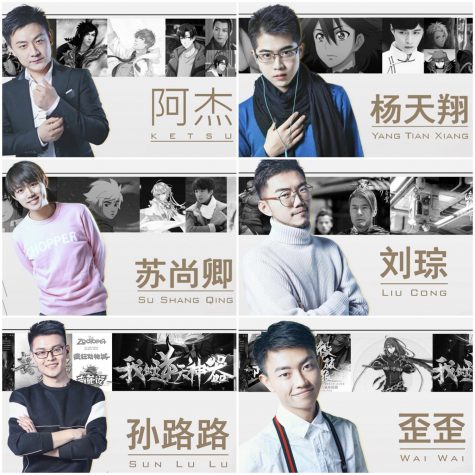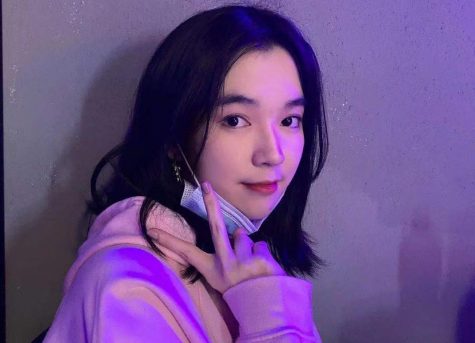Voice Acting, Another Form of the Performing Arts
As games and animations become increasingly popular, the art of voice acting becomes more recognized.
The voice acting industry has been on the rise in the past decade and continues to maintain relevance in many parts of the entertainment industry.
The start of it all.
Contrary to popular belief, voice acting and voiceover has been around for over a century. The very first voice performance was by Reginald Fessenden, who made recordings for weather reports as well as music, Biblical, and holiday messages for the radio in the early 1900s. Since then, technology has evolved, and our ways of creating entertainment have upgraded alongside those advancements. From the first Mickey Mouse animation to modern-day spectacular cinematics, the art of voice performance has always found a way to weave itself within.
What do people think when they hear “voice acting?”
Nowadays, if you ask someone what they know about voice acting, the common answer tends to be along the lines of “anime,” “cartoons,” “movies,” or “games.” Most people would say the first two. The rise in popularity of Japanese animated cartoons commonly referred to as ‘anime,’ has brought the voice acting industry greater recognition in the West. Before the 1980s, anime that aired in the United States was usually modified and tailored to the taste and culture of the American people. This includes replacing the Japanese voiceover with localized English dubs (voiceovers with American voice actors). In order to appeal to audiences, translations and plots varied. As more and more Japanese pop culture streams into the United States, the demand for dubbing skyrocketed, and English subtitles over the original Japanese dubbing became increasingly acceptable to people who started to call themselves anime fans.
Voice acting’s influence does not stop in the field of animated films. Games also have used voice acting for a while, starting from Disney’s games in the 1980s. A few decades have passed and it is now difficult to find any game without some kind of human voice being incorporated into the gaming experience. Thanks to video game console distributors and development companies such as Nintendo and Square Enix, many people have found joy in listening to character voices in Japanese, English, and many other languages.
Paired with anime, many Japanese and English voice actors have become well known within the circle of gamers and anime fans. Some of the well-known Japanese voice actors include Kamiya Hiroshi as Levi (Attack on Titan), Ranpo as Bungo (Stray Dogs), Kaji Yuuki as Todoroki Shoto (My Hero Academia), Kozume Kenma (Haikyuu), Hanazawa Kana as Mayuri Shiina (Steins’ Gate), Ichika Nakano (The Quintessential Quintuplets), Sawashiro Miyuki as Izuna (No Game No Life), and Sinon (Sword Art Online). These voice actors have made appearances in many well-liked anime and games and have captured the ears of bypassers and fans alike. For localization purposes, most anime and games give the consumer the option to listen to English voices as well. English voice actors in dubbing include Zach Aguilar as Kamado Tanjirou (Demon Slayer), Byleth (Fire Emblem: Three Houses), Aether (Genshin Impact), Erika Harlacher as Shinobu Kochou (Demon Slayer), Violet (Violet Evergarden), and Venti (Genshin Impact).

Character voices play a huge part in many consumer’s choices of which anime to watch or what games they want to play. According to studies done by several game media companies as well as countless online polls, a large section of players selected character voice as one of the leading reasons for playing a certain game.
“A voice actor is able to bring a character to life, and give them emotions as well as a personality. Making a character more interesting will allow you to become more attached to them, and with good voice acting, you can feel the highs and lows of what the characters go through in their stories. When a character fits perfectly with their voice, it will feel much more natural and make it seem like the character is real,” said Amelie Song ’21, a long-time fan of Japanese pop culture. Unlike actual films and documentaries, the emotions of characters rendered in 2D animations or CGI are largely contributed by the performance of the voice actors. Their performances provide a more wholesome experience for the audience who establish connections with the characters through emotions.
Voice Acting Outside of Japanese Pop Culture and the United States
Game and entertainment companies from China and Korea have made their way to the west as well in the recent decade. The popular game Genshin Impact, developed by Mihoyo, a Chinese company, is widely praised for its spectacular music and character voices that make the gaming experience mesmerizing for a wide selection of players. However, it seems like most players only pay attention to the English and Japanese voices and seldom give attention to Chinese and Korean voice packs that are also available.

Since the early 2010s, Chinese video game companies and animation studios have invested heavily in selecting the best voices for their characters. One of the most famous voice acting groups in recent years is the 729 Voice Studio founded by renowned Chinese voice actor Zhang Jie (more commonly referred to as A Jie), a pioneer in the field of modern voice acting in China. The team has worked on many projects since its creation such as donghua (the Chinese term for anime) with The King’s Avatar as well as Mo Dao Zu Shi (English translation: Grandmaster of Demonic Cultivation) both of which are liked by fans internationally.
729 Voice Studio harbors many great performers with an assortment of voices for the audience to enjoy. Anyone with the interest of getting into some Chinese voiceover games or shows has the fortune of encountering some sweet ear candy, from Su Shangqing’s youthful tone to Liu Cong’s deep and mature timbre. 729 Voice Studio’s recent collaboration in the new donghua 时光代理人 (Link Click) has gained wide recognition and praise with their touching performance that shook the hearts of its viewers.
New to the scene, Korean voices have inched their way into the international market as well. The release of Mystic Messenger, a visual novel game developed by Korean company Cheritz in 2016, has brought majestically voiced in-game stories and audio clips. Fans were in awe over the voices of seven potential love interests in the game that brought the characters to life. “The voice of the character really helps me understand the character’s background and where they were coming from,” said Sharon Gim ’21. Korean dubbing has started to appear in mobile and PC games, to the delight of players who crave a fresh experience.
Due to the popularity of voice acting, audio dramas (also called radio dramas) have started to become widely produced in Japan and China. Japanese audio dramas are usually accompanied by anime scripts and OVAs (Original Video Animation) sold through CDs. As for Chinese audio dramas, one of the leading providers of these works of art is 猫耳FM (missevan.com), where certain novels are scripted into multiple seasons and performed by voice actors. The audio drama app MiMi has picked up the popularity of shows from MissEvan and recreated them in Japanese.

Hopes For Widespread Recognition
“I would say that Japan has the most developed voice acting industry. But I think people start to pay more attention to voice actors and the voice acting industry in China and the U.S. And some universities in China add voice acting as a major too,” said Caroline Song ’22. Voice acting has certainly become an integrated part of the entertainment industry and will most definitely continue to grow in the coming years. With the continuous rise of animations and games, the demand for voice actors will continue to soar as well.
There is hope for voices in languages other than English and Japanese will become more well-known here in the United States in the future. This popularity will provide the opportunity for people to have a different experience listening to voices from different countries and give voice actors the recognition they deserve for their talents. Perhaps it is human nature to tune into other’s voices. Certainly, performing arts have no barriers.
“A voice actor is able to bring a character to life, and give them emotions as well as a personality. Making a character more interesting will allow you to become more attached to them, and with good voice acting, you can feel the highs and lows of what the characters go through in their stories. When a character fits perfectly with their voice, it will feel much more natural and make it seem like the character is real,” said Amelie Song ’21
Linda Chen is a Graphic Designer for ‘The Observatory’ yearbook. She enjoys photography as well as journalistic writing because she is able to see...











